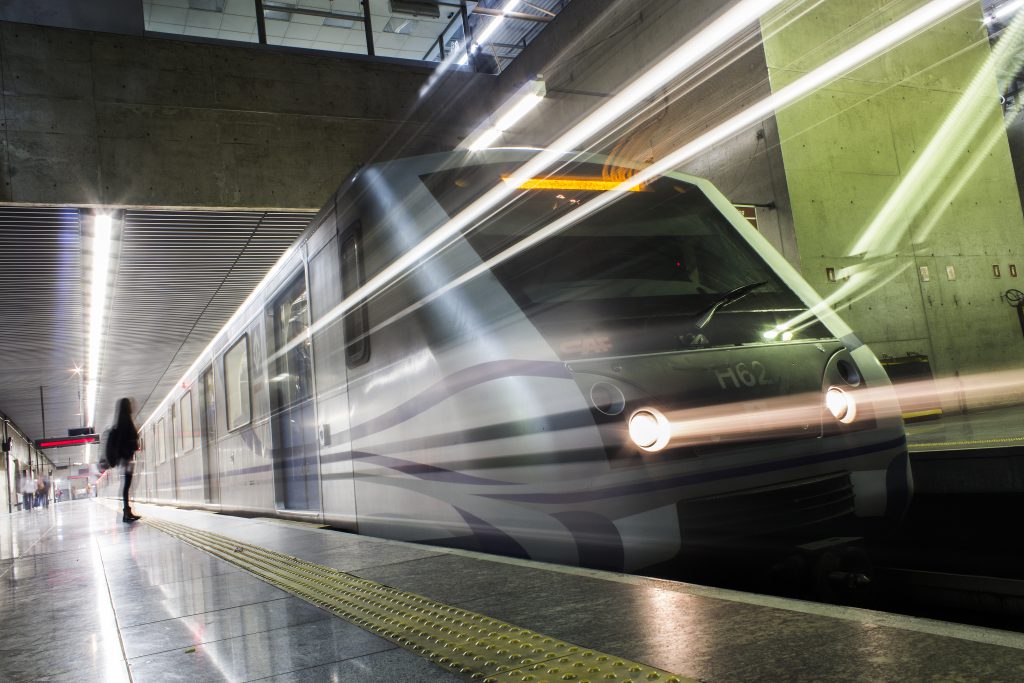‘There is a price to pay if we opt for a metro’

€90 million annual recurrent expenditure and environmental impact
A metro system in Malta would require a recurrent annual expenditure to the tune of €90 million and consequently government must tread carefully to avoid the risk of having such project straining public finances. Moreover, Government must weigh the environmental impact of the project including the disposal of the large volume of construction waste generated, and take into consideration the fact that the service could only be financially viable through an increase in population.
Transport Minister Ian Borg made these remarks when interviewed by the Voice of the Workers Weekly on Government’s plan on traffic reduction, particularly the introduction of a mass underground public transport system, known as a metro. He noted that from the studies carried out for the Government it is clear that whatever decision is taken, the country must pay a price.
Though a metro system has the potential to reduce traffic, he said it was important to look at the bigger picture to understand what such project entailed
“Commuter cannot expect to travel for free with a metro as this will required a recurrent annual expenditure in the region between €80 million and € 90 million a year to run the service,” the Transport Minister said. Nonetheless, government would still have to pay between €30 million and €35 million annually in subsidies to the bus operator, if not more as the service would have to be adjusted to feed the metro network.
“Though everyone enjoys having a metro station in the village square, Government must decide responsibly,” he continued.
According to these studies even the routes themselves can stoke controversy due to the impact caused on the value of nearby properties and the business community. Furthermore, the size of the Maltese population means that the only financially viable route at present is between Pembroke and Gżira.
“For the service to be viable, it must carry 150,000 passengers to Gozo. This would mean an explosion in the population of Gozo which is certainly not in government’s the plan,” the minister pointed out.
The Transport Minister expressed himself in favour of publishing the studies in order for the people to understand the implications of this project. However, he made it clear that he did not agree with the introduction of a congestion tax, as a measure to reduce traffic.
The Malta-Gozo tunnel
Ian Borg insisted that this project is financially viable because it is based on the concept that all investment will be made by the private sector which will redeem costs over a number of years through the revenue generated from the project itself. The Government is currently evaluating four bids submitted by international consortia.
However, he expressed regret that the political consensus among Government and Opposition seems to be fading away in the wake of the conditions being made by the Opposition including the holding of a referendum in Gozo. The Minister noted that the introduction of the fast ferry service would also fuel further debate on the need or not of such project.
Asked if the Government was having second thoughts on the project, Ian Borg remarked it wished to implement the project in line with the Labour Party’s manifesto commitment. However, he said Government would be irresponsible to ignore the position being adopted by the party in Opposition as the latter could eventually be in government. Consequently, he said there was the need for holding talks in order to for the project to forge ahead.
Work on arterial roads
The Transport Minister said that with the completion of the Addolorata Junction project in Marsa and the St. Lucia tunnel, the traffic congestion in the south of Malta had eased considerably. Meanwhile, the completion of the works on the Regional Road and Tal-Qroqq tunnels in the coming weeks, and the Central Link project by the end of the year would further improve the situation. Furthermore, by the end of next year works on the airport junction would be completed. The final two major project left would then be in Msida and the Paceville and Pembroke tunnels.
Touching on the controversies surrounding the environmental impact especially the loss of trees caused by these projects Ian Borg said this was only happening as a last resort. He noted that ficus trees, such as the one that was recently at the heart of a controversy in Attard or olive trees, could be saved because as efforts to transplant them had a good success rate. However, he acknowledged that on the case of fir and spruce trees the success rate was low, and hence government was compensating by planting new ones.
Port infrastructure
The Transport Minister remarked that by mid-2023 the €65 million project to upgrade the cargo facilities at Ras Ħanżir would be completed. Government was evaluating bids received which ranged from €35 million to €90 million. This project comprises new cargo handling facilities and an overall increase in the capacity of the terminal. Meanwhile, the inner parts of the port are being dredged to facilitate the berthing of large vessels. Once the project is completed, a decision must be taken to decide on whether to have the facility administered by Transport Malta or issuing a call for third parties interesting to manage it themselves.
As for the issue involving port workers foremen which has been left pending many years Ian Borg pledged to continue working hard for a solution. He noted that UĦM Voice of the Workers was constantly spurring on the Government to take action. He added that with the Ras Ħanżir project, foremen would have the potential to better their revenue due to the expected increase in the volume of goods passing through this facility.
